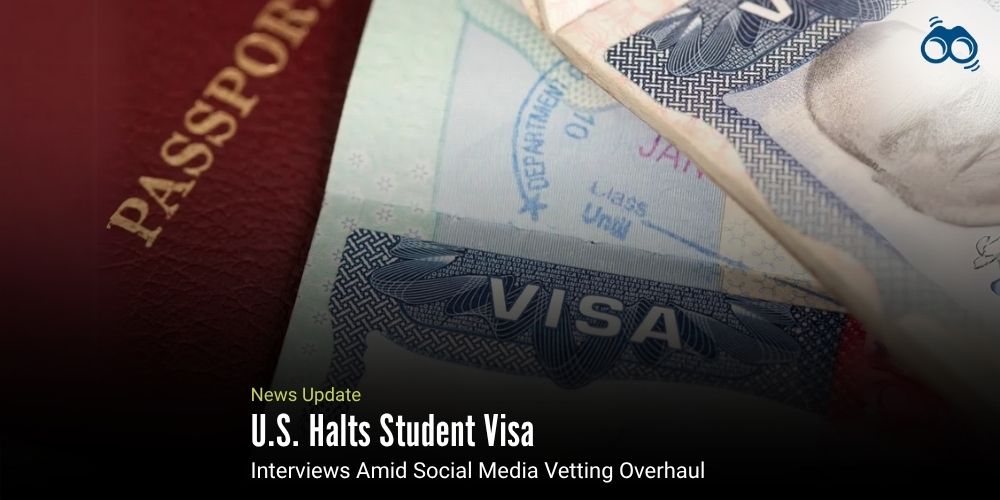Political Tensions in Higher Education: Trump’s Latest Actions on Student Visas
U.S. Universities Brace for Impact as Visa Suspensions Disrupt Enrollments
The Trump administration has reportedly instructed all U.S. consulates worldwide to suspend new visa interviews for student and exchange visitor applicants. This decision is understood to be part of a broader strategy by the State Department to introduce mandatory social media screening for international students seeking to study in the United States. According to an internal communication, U.S. Secretary of State Marco Rubio indicated that updated guidelines on the social media vetting process would soon be released. He reportedly advised consulates to temporarily halt the scheduling of visa appointments until the review was finalised. The policy shift highlights the administration’s increasing focus on national security and immigration control, raising concerns among prospective students and academic institutions globally.
Politico reported that the move could significantly disrupt student visa processing while also financially impacting U.S. universities that rely on international enrollments. A document obtained by Politico instructed consular sections to stop adding new student or exchange visitor visa appointments, categories F, M, and J, until expanded social media screening had been implemented and further guidance provided. Previously, the Trump administration introduced social media screening rules that specifically targeted returning students involved in protests against Israel’s actions in Gaza.
The latest directive did not provide details on the new vetting procedures but cited executive orders related to counterterrorism and combating antisemitism, signalling a broader scope of scrutiny ahead. Data from the Institute of International Education revealed that over 1.1 million international students were enrolled in U.S. colleges during the 2023–24 academic year. Furthermore, the National Association of Foreign Student Advisers reported that foreign students contribute approximately USD 43.8 billion annually to the U.S. economy while supporting over 378,000 jobs.
The Trump administration has reportedly intensified its scrutiny of universities, particularly elite institutions such as Harvard, accusing them of being excessively liberal and fostering antisemitism. Last week, the administration attempted to revoke Harvard’s authority to enrol international students; however, a federal court swiftly blocked the decision. In response, Trump demanded a list of all foreign students currently at Harvard, alleging that their home countries did not sufficiently support their U.S. education. This policy shift raises concerns about academic freedom and global student mobility and also underscores the broader political tensions surrounding higher education in the United States.
Editor's Note:
The Trump administration’s decision to stop student and exchange visa interviews marks a major change in how international students are approved to study in the U.S. While national security is the reason given, the new rule requiring all students to go through social media checks raises serious concerns about privacy, academic freedom, and political motives. This sudden pause in visa processing interrupts students’ plans and also puts financial pressure on universities that rely on international students. The move to target top universities like Harvard shows a larger political conflict over education. Accusing schools of being "too liberal" or allowing antisemitism suggests the government is trying to control what happens in higher education. Trying to stop Harvard from accepting foreign students and asking for a list of them is seen by many as extreme and harmful to university independence.
Skoobuzz suggests that due to the policy changes, the U.S. risks losing its status as a leading destination for international students, who may increasingly opt to pursue education in other countries.














0 Comments (Please Login To Continue)